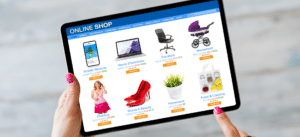
Author: Graham Davidson
Graham Davidson is the Owner and Chief Marketing Guru of Sublyme Digital, leading the agency’s remote-first approach to deliver impactful web design, SEO, and digital growth strategies for businesses across North America.
Guide to Building, Optimizing, and Growing Your Online Store
Key Takeaways:
- eCommerce is now essential for brands seeking direct customer relationships, higher margins, and independence.
- Platform choice—WooCommerce, Shopify, Webflow, and others—impacts flexibility, scalability, and long-term growth.
- Success depends on a holistic strategy: seamless UX, compelling branding, robust analytics, and ongoing adaptation.
- Leveraging integrations, automation, and external expertise can set your store apart in a crowded digital marketplace.
The Evolution of eCommerce
eCommerce has evolved from simple online catalogs to sophisticated, omnichannel ecosystems. Today’s leading stores are built on platforms that offer more than just shopping carts—they provide end-to-end solutions for inventory management, order fulfillment, marketing automation, and customer engagement.
Choosing the Right eCommerce Platform
eCommerce isn’t just about selling products—it’s about creating memorable experiences, building community, and empowering customers to choose your brand again and again.

Crafting a Strategy for eCommerce Success
Security, Compliance, and Trust
The Future of eCommerce: Trends to Watch
FAQs:
Answer: When selecting an eCommerce platform, consider your business size, budget, technical expertise, scalability, and the specific features you need—such as payment options, inventory management, integrations, and customization capabilities. It’s also crucial to evaluate the platform’s user experience, security standards, and support resources.
Answer: Enhancing customer experience starts with intuitive navigation, fast load times, and mobile-friendly design. High-quality product images, clear descriptions, easy checkout processes, and responsive customer support all contribute to a positive shopping journey. Integrating live chat or AI chatbots can further boost satisfaction and engagement.
Answer: Mobile devices account for a significant share of online shopping traffic. A mobile-optimized store ensures that customers can browse, add items to their cart, and check out seamlessly from any device. Without mobile optimization, you risk losing sales and frustrating your audience.
Answer: Analytics provide valuable insights into customer behavior, product performance, and marketing effectiveness. By tracking key metrics—such as traffic sources, conversion rates, and cart abandonment—you can make data-driven decisions to refine your strategy, improve user experience, and increase sales.
Answer: Prioritize security by using SSL certificates, maintaining PCI compliance for payments, and choosing reputable platforms with built-in safeguards. Be transparent about your privacy policies and data collection practices. Regularly update your software and monitor for vulnerabilities to protect both your business and your customers.
Success Stories
365 Data Centers
Discover how we rapidly rebuilt and optimized a 30-page website for 365 Data Centers, restoring their online presence and managing digital ad campaigns across key regions to drive engagement and growth.
XTECH Football Pads
Discover how we transformed XTECH Football Pads‘ digital presence, boosting their online sales and tripling website traffic through innovative website development and user experience enhancements.
BeEarth Foundation
Discover how we partnered with the BeEarth Foundation to develop a website that aligns with their mission of sustainability and global engagement. Our work has significantly increased their online visibility and engagement, supporting their efforts to promote sustainable development.
We Recycle Solar
Learn how we illuminated digital success for We Recycle Solar by completely redesigning their website to reflect their leadership in the growing solar recycling industry and implementing strategic digital advertising campaigns that enhanced their visibility at key industry events.
Preferred Home Health Care & Nursing Services
Explore how we elevated the digital presence of Preferred Home Health Care & Nursing Services by enhancing their website for better lead generation, building a dedicated site for staff recognition, and optimizing SEO for their location pages.
What Our Clients Say: Elevating Online Success
We Build Cool
Final Thoughts
Let's Build Something Sublyme
Ready to take your online store to the next level? Partner with Sublyme Digital to build, optimize, and grow an eCommerce presence that stands out. Contact us today for a free consultation and discover what’s possible for your business in the digital marketplace.



